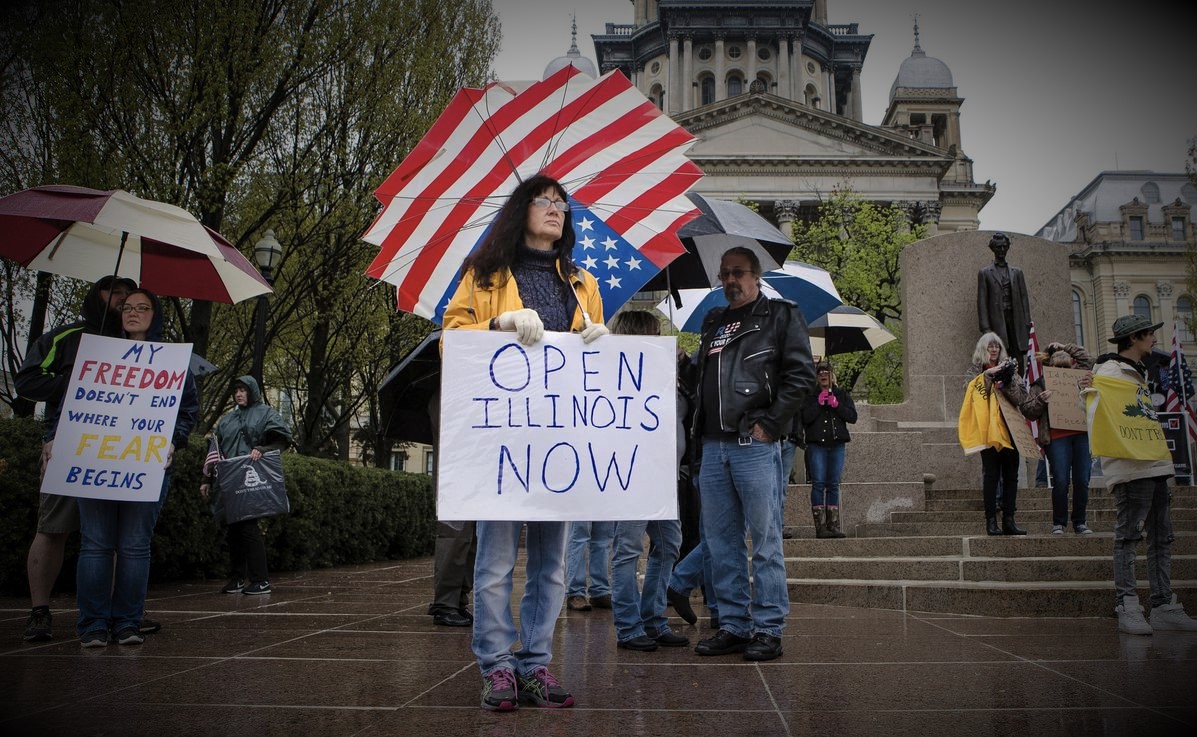Region 6, Including Effingham Area, Moved to Tier 1 Status
Published on January 18 2021 4:42 pm
Last Updated on January 18 2021 4:48 pm
Written by Greg Sapp

The Illinois Department of Public Health Monday afternoon has moved Region 6, including the Effingham area, from Tier 3 to Tier 1 status.
IDPH said they could do this through multiple health care staffing contracts launched by the State to increase hospital staffing.
The big change is that Tier 1 status allows indoor dining and indoor seating at bars and restaurants. Here are the new guidelines for Tier 1 status, just announced by the State on Friday:
Restaurants and bars in Regions in Tier 1 can open indoor dining with capacity limited to the lesser of 25 people or 25 percent of room capacity. Additionally, establishments must serve food and indoor tables must be limited to no more than four people, with reservations limited to two hours. Outdoor dining regulations across the resurgence plan and Phase 4 remain unchanged.
| Tier 1 | Tier 2 |
|
|
The shift to Tier 1 status also impacts school sports.
Under the information posted Friday by the IHSA, the only high-risk winter sports is boys and girls basketball. Winter sports for schools in Tier 1 regions may begin intra-team scrimmages immediately.
The IHSA’s low-risk winter sports include Badminton, Boys Swimming & Diving, Cheerleading, Dance, Boys & Girls Bowling, and Girls Gymnastics. There are no medium-risk winter sports.
The IHSA Board of Directors is scheduled to meet on January 27. Executive Director Craig Anderson anticipates the Board will set competition start dates for low-risk winter sports prior to the January 27 meeting.
Hospital leaders and local health departments have communicated to IDPH that their primary capacity challenge is the need for additional staffing and stressed that state-facilitated staffing contracts will be critical in addressing this challenge. In Monday afternoon's release from IDPH, there is a statement that "with this surge staffing prorgram, IDPH and hospital leaders feel confident that metrics can safely move away from utilizing medical/surgical bed limits to move across mitigation tiers, allowing more regions to advance."
The "surge staffing" program, IDPH says, leverages the state's larger contracting power to engage multiple staffing vendors and create access to a talent pool at greater scale than any individual hospital could achieve.
Here are other changes achieved by a switch to Tier 1 status:
Meetings, social events and gatherings (including weddings, funerals, potlucks, etc.)
• Limit to lesser of 25 guests or 25% of overall room capacity both indoors and outdoors
• Applicable to professional, cultural and social group gatherings.
• Not applicable to students participating in-person classroom learning, or sports.
• This does not reduce the overall facility capacity dictated by general Phase 4 business guidance such as office, personal care, retail, etc.
Organized group recreational activities (fitness centers, sports, etc.)
• Sports should follow the mitigation measures set forth in the All Sport Guidelines, which outlines appropriate levels of practice and competition based on individual sport risk
• Face coverings must be worn at all times in fitness centers, including while engaged in individual exercise regardless of person or machine spacing.













